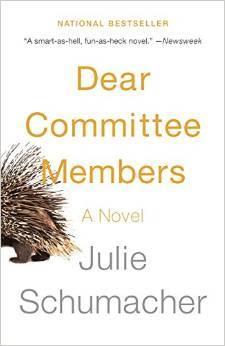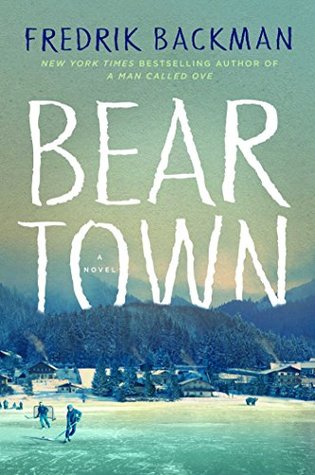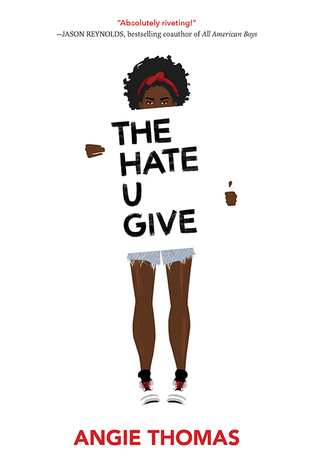You guys, my commute to school these days is loooong. I'm spending quite a bit of money on gas, and it's only a matter of time before I get pulled over because not a day goes by I haven't seen flashing lights somewhere on my drive (this portion of K-10 seems to be over-monitored, in my personal opinion).
But! I don't even mind, because two things: 1.) My drive is surprisingly pretty (in that Kansas, golden corn-field, sunflower, rolling green meadow kind of way). This may change come winter, but right now I'm loving the views. And 2.), you guessed it, the audio books. I made it through five books in September thanks to that commute, and some of them were quite good. So, let's jump in.
The Book of Speculation by Erika Swyler
Unfortunately, this was not one of the good ones. I mean, the description of it sounds good. Librarians? Mysterious and beautiful old books? Mermaids and traveling circuses and magic? It kind of sounded exactly like my thing. Alas, it failed to deliver, and my general recommendation is to skip this one. I just found it rather boring and uninteresting. I failed to care about any of the characters, the mystery at the center was obvious, there were plot-holes, and there was some content that just made this one not that enjoyable.
Dear Committee Members by Julie Schumacher
This one! Epistolary novel at its best! So this is written from the perspective of an older creative writing professor at a second-rate university where funding keeps getting cut and the building is falling apart around the poor, neglected English department. Having long given up on his own career ambitions as a novelist, and beset by numerous requests for various letters of recommendations (LORs) from students and faculty alike, Professor Jason Fitzger uses these letters as his outlet for creative writing. The result is hilarious. Maybe I found it so enjoyable because of my current re-entry into the world of academia, but this one was just so much fun. I highly recommend (with the caveat that there is a little bit of language at some points).
Beartown by Fredrik Backman
Backman strikes again. I just don't even have words to describe how powerful this one is. I mean, it's incredible. It was masterfully written, and I will be thinking about this book for a long, long time. The only reason it will not replace
Ove as my favorite Backman is because the content is quite a bit darker, and the language considerably rougher, and therefore it is a harder, less enjoyable read. I just can't even believe how realistic Backman makes his characters, and how much sympathy he made me feel for
everyone in this story. And there are some horrible people in this story! The one complaint I had is that at the end, the resolution felt a little too poetic, a little too... satisfying? I have a hard time explaining what I mean by that without giving away major plot points, and I simply don't want to spoil this for anyone. But if you've read it, I'd love to chat with you about it.
His Majesty's Dragon by Naomi Novik
This one was just a complete delight. I thoroughly enjoyed it. It's just my kind of historical fiction, as the tone and style feels like it could've been written in early 19th Century England. Except there are dragons. What fun! The characters and dragon lore and everything were very carefully crafted and this was just a super enjoyable read. My only complaint is that there wasn't a romance (everything is better with a romance), which I kind of understand given the circumstances, but I still wanted one. I'm tempted to read the next in the series (although, holy toledo there are like, nine books! Ugh!), but the plot preview doesn't leave much room for a romance in that one either, so, kind of less motivated. Anyway, still a fun, solid recommend.
The Hate U Give by Angie Thomas
I suggested this one (before reading it) for my virtual book club, and after reading it I'm kind of super horrified because SO! MUCH! SWEARING! I mean, it's a YA book, and while there's generally been an increase in swearing in contemporary YA, this is way, way, way more swearing than I've probably read in any book ever. That being said, the swearing is all super realistic, and the book for certain would not be as authentic or believable without it. Still, just be warned before you begin, should you choose to read this one. And, despite the cussing, I do still recommend this one. It is a powerful, powerful book about very current controversial racial issues (the main character witnesses a police shooting of her friend), and I'm actually excited to talk about it with my book club because there is so much to talk about. The characters in this book are amazing, there is a lot of funny humor in between the horrible stuff, and I learned so much I didn't know before about people who have a very different life than mine (the point of reading diverse books). There is a reason this is a best seller right now, and I agree that it deserves it's place and should be read and talked about. But yeah, so much language. So, so much language. Just don't listen to it on audio (which I did, because that's the only way I can read books right now, so I know from experience that it's not a good idea, even though the narrator gives a fabulous voice to all the characters).
Anyhoo, what was your September reading like? Read any of these ones before? I'd love to chat about them if you have!






